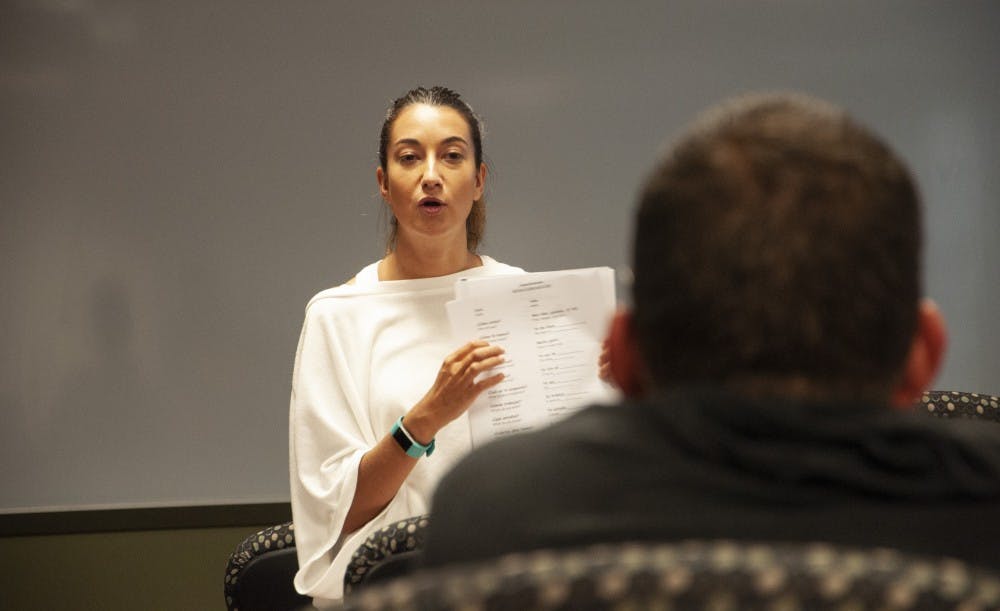The noise of lunch on Tuesdays are usually mundane at best, but at the School of Health Sciences, the sounds of Spanish are thrown into the mix because students there aren’t just attending physical therapy classes.
More than a dozen have signed up to take weekly conversational Spanish classes focused on vocabulary and dialogue they may encounter as physical therapists.
Paula DiBiasio, associate professor of physical therapy education, is one of the individuals that helped connect the School of Health Sciences with El Centro de Español – a connection she believes will improve her student's abilities to do their jobs in the future.
“Cultural competence in healthcare providers can help reduce disparity in groups,” DiBiasio said. “Being culturally competent can increase trust and promote empowerment with people’s involvement in their own healthcare.”
But over the years she has worked with El Centro, DiBiasio has found that they do so much more than just teach Spanish.
“At El Centro, our students also learn so much about culture and heritage,” DiBiasio said. “This helps students understand their own culture and allows them to learn and be exposed to other cultures.”
DiBiasio’s counterpart at El Centro who teaches these weekly classes is Diana Prieto Viñas, assistant director of the Spanish Center.
In order to make the class the most relevant for her students, Viñas focuses her teaching material on medical terms.
“I developed a curriculum for these classes so they could learn more specific language about the parts of the body,” Viñas said. “The curriculum is also based on the dialogues patients and doctors have in the workplace.”
At the end of every class, Viñas encourages students to suggest topics they should cover in class.
“My goal is to make sure they can learn vocabulary that will help them deal with different situations in their work,” Viñas said. “I want them to have these Spanish skills so they can go and work with these populations.”
One of the regulars in this class is Trishia Yada, a second-year student in the Doctor of Physical Therapy program. Her interest in the class was sparked when she learned it would be focusing on medical terminology.
The hour-long weekly classes have already helped Yada in her role as a student volunteer in the Health Outreach Program of Elon Clinic. Yada’s first patient at the HOPE Clinic was a native-Spanish speaker.
“At that point I was still learning the basics of Spanish, but I was able to understand certain phrases and words the patient was saying,” Yada said. “Being able to communicate with her was really helpful because I was able to hear directly from her and figure out what I could do to help.”
Giving students such as Yada the tools to communicate effectively with their patients is what both DiBiasio and Viñas want to continue to do.
While DiBiasio works with other departments at Elon to add more languages to the lunchtime rumble, Viñas continues to plan ways to expand the current Spanish program.
Ideas of holding lunch class twice a week, adding a night class and introducing an intermediate level are all in discussion. Growing this program by offering more opportunities is one of Viñas' top priorities.
“We live in a global society, and we are in contact with people from different cultures and different backgrounds every day,” Viñas said. “We need to be able to communicate with them, especially if it is about their health.”


